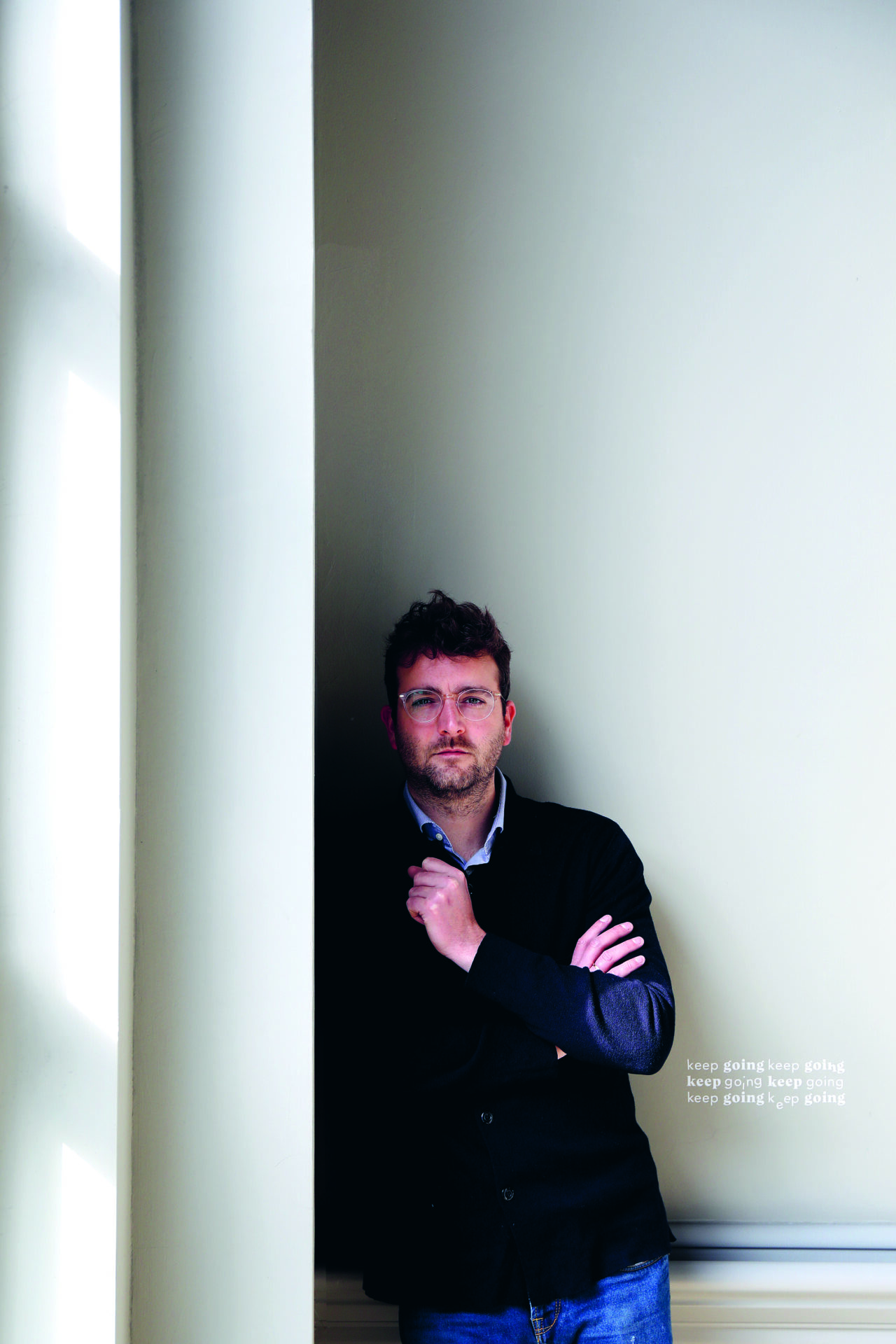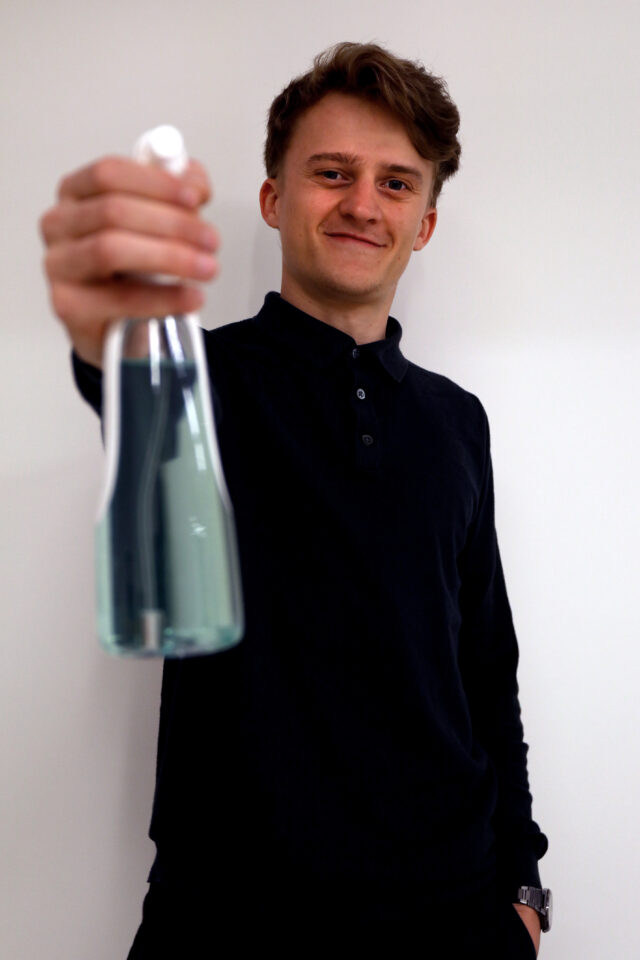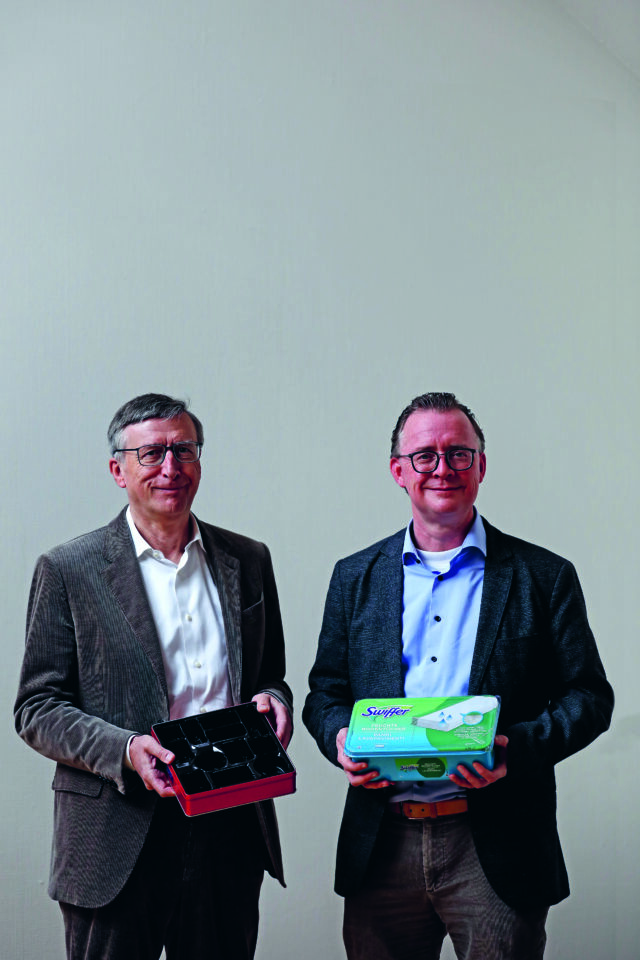HNST: the world’s most sustainable jeans

Eco-fashion is hot. Today, organic cotton, bamboo and even seaweed are used to make sustainable clothes. Even for the popular jeans, there are now ecological alternatives. Worldwide, several well-known brands already offer a line of eco-jeans. But the cleanest jeans in the world are made by an Antwerp start-up that used a guarantee from PMV for funding.
In the field alone, cotton – the basic fabric for jeans – requires many litres of water, and the further washing and colouring that takes place during the jeans production process turn the popular garment into a product that uses up to 7,000 litres of water. The heavy metals that are normally used during production, end up in the water. It makes jeans’ carbon footprint extremely heavy. Tom Duhoux made it his mission to make the cleanest jeans in the world when he founded HNST, from the English word honest. Instead of 7,000 litres of water, HNST uses only 361 litres to produce a pair of jeans. As raw material, the label uses… old jeans and cotton waste.
Saving water
To live up to its ambition of the cleanest jeans, the company did not overlook any detail during development: for instance, the,buttons are removable (and thus reusable), the stitching yarn consists of 100 per cent biodegradable Tencel and the labels are made of paper-like material. On top of that, the printing ink on those labels is PVC-free. Because the dye is applied to the cotton thread via electricity (rather than baths), no chemicals are needed either. But the biggest gain is the spectacular water savings: a whopping 6,639 litres saved per pair of trousers. That’s because HNST’s trousers are made of 56 per cent recycled cotton, so much less virgin cotton is needed – an asset, as the cotton plant is enormously thirsty. The recycled denim is extracted from discarded jeans the company collects. During the first ‘harvest’ campaign, HNST hoped to collect 2,000 pieces, but after nine weeks, the tally stood at 6,000 trousers: a huge success.
The highest available
HNST jeans consist of 56 per cent recycled denim, which is the highest achievable. Because the fibres shrink during production, original cotton is also still needed. Nevertheless, the start-up wants to get that share further down through innovation. For example, by finding ways that make fibres shrink less when pulled into cotton fluff. Incidentally, through innovation, HNST has managed to replace chitosan, extracted from crustacean waste to make the yarn ready for weaving, with pectin from orange peels. This allows the start-up now to also offer jeans that are completely vegan. Moreover, HNST’s jeans are not significantly more expensive than non-ecological alternatives: the price difference with traditional jeans brands is negligible because HNST works with a deposit formula.
Ambition
HNST has the ambition to become a European brand. It recently raised €220,000 of capital from various investment funds, including from Hefboom and Trividend. Hefboom has been providing various forms of financing aimed at positive social impact for over 30 years, contributing to a social and sustainable society. Trividend is a Flemish social economy participation company. People- and environment-friendly companies and organisations in Flanders can go there for venture capital. But the investment fund Freshmen also stepped in. Earlier, the start-up used a guarantee from PMV to complete its bank financing. The funds should make it possible to produce the jeans and launch the collection, for example through social media. After all, HNST sells directly to consumers through its webshop, but also deploys shops to reach customers, although many fashion retailers may not have an easy time buying new collections due to the corona crisis. The brand is off to a good start; it is even considering other sustainable garments already…
Visit the website of HNST


